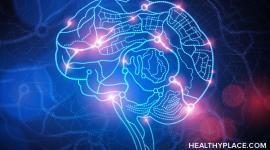Depression and Anxiety Medication Benefits and Drawbacks

Depression and anxiety medication are common forms of treatment for these life-disrupting mental illnesses. There are many opinions regarding prescription drugs for mental health, and these opinions are expressed loudly and often. It can be overwhelming and make it difficult for you to know if you should take or avoid medication. Here’s a straightforward look at depression and anxiety medication, its benefits and drawbacks. Let this information help you decide if talking to a doctor about medication is right for you.
Mood and anxiety disorders can sometimes be caused by disruptions in the way the brain operates. Chemicals in your brain called neurotransmitters, such as serotonin, norepinephrine, and dopamine, are messengers between brain cells. They are partly responsible for our mood and emotions. If they become out of balance (for example, if there is too much or not enough of a certain neurotransmitter), smooth communication and operation within the brain is interrupted. This can lead to depression and/or anxiety.
Depression and anxiety medications are designed to restore proper balance and functioning to these neurotransmitters. Psychopharmaceuticals, or psychiatric medications, are also chemicals, and they’re created to properly interact with the chemicals in the brain. They provide a helping hand directly to the brain so it can restore natural functioning.
Depression and anxiety medications can be helpful, but it’s important to consider both their benefits and side effects.
Benefits of Depression and Anxiety Medication
When the cause of mood and anxiety disorders lies within the brain, medication can help by meeting it directly at the source and repairing the root of the problem. Once the medication begins to work, benefits can be significant. Specific depression symptoms that are often improved with medication:
- Improved sleep, which helps the brain heal even more
- Appetite regulation
- Improved focus, concentration, and other executive functions
- Decreased muscle tension for improved physical sensations
Taking medication often provides a much-needed mood boost, which can have a far-reaching ripple effect. Improved mood leads to increased motivation, drive, and energy. This, in turn, makes you better able to make the lifestyle changes necessary to continue to rise from depression. It becomes easier to exercise, eat properly, connect with others, and engage in depression self-care. As you do these positive things, your mood improves even more.
Depression and anxiety medications can indeed be helpful, but they aren’t without their drawbacks.
Drawbacks of Anxiety and Depression Medication
All medications, not just psychiatric medications, have side-effects. Antidepressants and antianxiety medications aren’t exempt. This is a general list of common side-effects you might encounter when taking anxiety and depression medication (it’s important to note that specific side effects vary depending on the specific type you take):
- Insomnia
- Drowsiness
- Weight gain
- Sexual problems
- Stomach upset
- High blood pressure
- Dry mouth
- Blurred vision
- Irritability
- Risk of tolerance (benzodiazepines)
- Interactions with other medications
- Interactions with some foods
Also, all antidepressants carry what is called a black box warning, the highest warning assigned to prescription medications, because they can increase suicidal thoughts and behavior, especially initially. For most people, antidepressants decrease the risk of suicide in the long run.
Another drawback is that medication isn’t a cure-all or a magic pill that will completely eradicate depression or anxiety. These are complex illnesses with multiple causes. When the cause is something other than a chemical imbalance in the brain, such as abuse or trauma or life stressors, medication is ineffective.
In addition to benefits and drawbacks of medication, there is other useful information to help you decide whether medication is right for you.
Other Information about Medication You Should Know
Know this about depression and anxiety medication:
- Be patient when starting, as they often take two- to four weeks to begin to take effect and up to 12 weeks for full effect
- In about 40 percent of people, it takes more than one try to discover the right medication (Greenlaw, 2010)
- Communication with your doctor is key so the right adjustments can be made and you get the most out of medication (consider keeping a log of your side-effects, symptoms, and improvements)
- Medication must be taken as prescribed to work well
- Medication can be short- or long-term, depending on how severe your depression or anxiety is, other medical conditions you have, and other factors
- Often, medication is most effective when combined with other treatments like therapy and lifestyle changes
Whether to take medication or opt out is a personal decision to be made with your health care provider. Consider depression and anxiety medication benefits and drawbacks and the nature of your own depression, and talk openly with your doctor to find the treatment that is right for you.
APA Reference
Peterson, T.
(2022, January 4). Depression and Anxiety Medication Benefits and Drawbacks, HealthyPlace. Retrieved
on 2024, June 20 from https://www.healthyplace.com/depression/depression-treatment/depression-and-anxiety-medication-benefits-and-drawbacks


